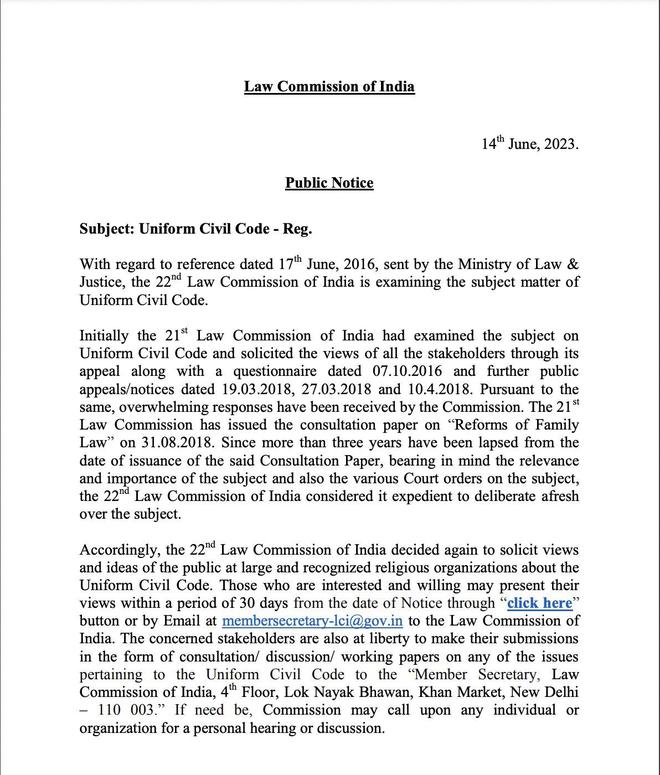The 22nd Law Commission of India on Wednesday sought fresh suggestions from various stakeholders, including public and religious organisations, on the Uniform Civil Code (UCC).
Also Read | Chasing utopia — the quest for a Uniform Civil Code
The previous 21st Law Commission had also examined the subject and solicited the views of stakeholders through its appeal. The previous commission has also issued a consultation paper on “Reforms of Family Law” in August 2018.

Pursuant to the same, overwhelming responses have been received by the commission, it said in a communiqué.
“Since more than three years have lapsed from the date of issuance of the said consultation paper, bearing in mind the relevance and importance of the subject and also the various court orders on the subject, the 22nd Law Commission considered it expedient to deliberate afresh over the subject,” the panel said.
Those willing to share their views, suggestions on the UCC can write to the commission through the email of the member-secretary or via its website.
Cultural diversity
To mention, in August 2018, the 21st Law Commission — led by former Supreme Court judge Justice B.S. Chauhan — had said the UCC “is neither necessary nor desirable at this stage” in the country. In a 185-page consultation paper on the subject, the commission had emphasised that secularism could not contradict the plurality prevalent in the country. “Cultural diversity cannot be compromised to the extent that our urge for uniformity itself becomes a reason for threat to the territorial integrity of the nation,” it had said.
Also Read | The future of a Uniform Civil Code
The commission added that a unified nation did not necessarily need to have “uniformity” and that ‘‘efforts have to be made to reconcile our diversity with universal and indisputable arguments on human rights.’‘ Differences did not always imply discrimination in a robust democracy, the government’s top law advisory body said, even while suggesting that certain measures on marriage and divorce should be uniformly accepted in the personal laws of all religions.







